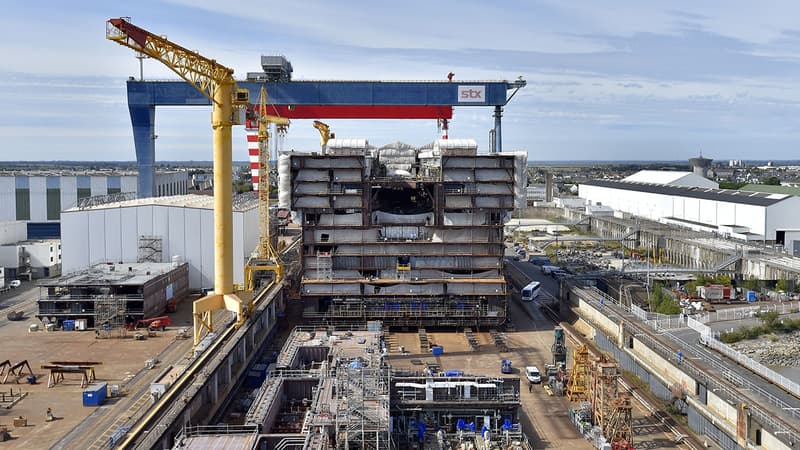After Dunkirk, Fos-Marseille and Le Havre, the port of Nantes-Saint-Nazaire, one of the 50 most CO2-emitting industrial estates in France, will receive public aid, up to 4.1 million euros, to activate the decarbonisation of its activities. This was announced on Monday by the Minister of Industry, Roland Lescure.
“The Great West joins the French team of low-carbon industrial zones (ZIBAC)” around projects for the “ecological transformation of a territory”, he declared in an interview with West of France.
Hydrogen transport and capture of excess CO2
As in the 1960s and 1970s, when the large infrastructures for the industrial development of the country were created -high voltage lines, nuclear power plants or roads-, the ZIBAC projects contemplate the construction of infrastructures focused on decarbonisation, in particular to allow the transport of hydrogen, or for the capture of excess CO2.
To finance the “infrastructures of tomorrow” in the Nantes-Saint-Nazaire area, the State will contribute “4.1 million euros, or 50% of the total amount that will come from industrialists and communities”, the minister specified.
State aid “will also support innovation towards the energy infrastructures of tomorrow” such as Lhyfe and its offshore hydrogen electrolyser, which would be “a world first”, said Roland Lescure.
Industrial energy self-consumption
The ZIBAC project also provides for the development of energy self-consumption by industrialists through photovoltaic panels and wind energy, the minister recalled.
According to figures from the General Secretariat for Ecological Planning (SGPE) also published this Monday, the 50 industrial estates with the highest greenhouse gas emissions, excluding refining, must reduce their emissions between 43 and 25 million tons of CO2e between 2022 and 2030, and the rest of the industry between 33 and 20 million.
With, in particular, “a fertilizer plant, a power plant and a refinery”, the Nantes-Saint Nazaire area alone accounts for 8% of French industrial emissions, the minister recalled.
Source: BFM TV


